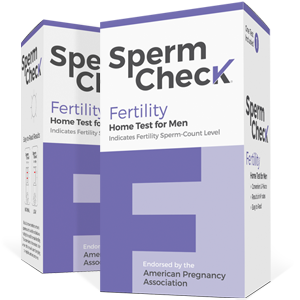
Are you and your partner trying to conceive and wondering how long it takes to get pregnant? The answer to this question is different for everyone. Some couples get pregnant within a few weeks, while others may take months or years. The waiting game can be taxing no matter how long you have been trying.
While it’s natural to feel excited and eager to start a family, remember that every couple’s journey to pregnancy is different. The amount of time it takes to conceive can vary significantly due to several factors, including age, health, lifestyle choices, and more.
Conception Probabilities
A study published in the British Medical Journal (BMJ) states that approximately 30% of couples achieve conception within the first month of trying without fertility assistance.
Cumulatively speaking, unassisted conception rates are approximately:
- 75% after six months
- 90% after one year
- 95% after two years
Typically, the likelihood of conception without assistance steadily decreases as the months of unsuccessful attempts compound.
Age and Its Affects on Fertility
A person’s age is one of the most common factors affecting their likelihood of conception.
The above BMJ study notes that for women, there is a strong association between infertility and increasing age. The most notable decline in fertility is found in women during their late 30s through their early 40s. Women between the ages of 35 and 39 are only about half as likely to conceive without assistance compared to women between the ages of 19 and 26.
Age can also hinder male fertility, but often to a lesser degree. A 2020 study notes that certain qualities of semen, like sperm count, accessory gland function, sperm production, and sperm viability, all decline with age. Some professionals in the field think these hindrances can occur as early as age 40.
Health Issues That Affect Male Fertility
Some health conditions that can negatively impact fertility in men include:
Varicocele
Varicocele is a condition where the veins in the testes become enlarged. This condition can raise the temperature of the testes, which can be damaging to sperm production.
Low Sperm Motility
Sperm motility refers to the ability of sperm to swim. Non-motile sperm may have difficulty reaching the egg and fertilizing it.
Abnormal Sperm Morphology
Sperm morphology refers to the shape of a sperm head. Sperm with abnormal head shapes may have trouble swimming and/or be unable to penetrate the egg’s outer layer to fertilize it.
Other medical issues like hormonal imbalance, infections, or conditions like diabetes can also hinder sperm production. Not all men with these conditions will be infertile, but their likelihood of conception typically decreases.
Consider checking your sperm count with SpermCheck Fertility. This at-home test can help you get the answers you need quickly.
If you are concerned about another aspect of your fertility, consult your healthcare provider and explain the situation.
Health Issues That Affect Female Fertility
Some health conditions that can negatively impact fertility in women include:
Premature Ovarian Failure
This condition causes the ovaries to stop functioning normally before age 40. Premature ovarian failure (POF) can hinder the ovaries from producing estrogen and releasing eggs regularly.
Pelvic Inflammatory Disease
This condition is caused by an infection of the female reproductive organs. Pelvic inflammatory disease (PID) typically occurs after sexually transmitted bacteria have spread to the uterus, fallopian tubes and/or ovaries. While symptoms of PID can be subtle for some women, it can lead to infertility if left untreated.
Endometriosis
Endometriosis is a condition where tissue that usually lines the inside of the uterus grows outside of the uterus. Endometriosis can cause inflammation, pain, and damage to the fallopian tubes and ovaries, making conception less likely.
Additional medical issues like hormonal imbalance and sexually transmitted infections can reduce women’s chances of conceiving.
Women with serious concerns about their fertility should consult with a healthcare professional.
Lifestyle Changes That Can Increase Fertility
Many aspects of a couple’s lifestyle can be altered to increase their chance of conceiving. Some activities to avoid include:
- Excessive Alcohol Consumption
- Smoking Cigarettes
- Using Recreational Drugs
- Exposure to Harmful Chemicals (Lead, Mercury, Arsenic, Etc.)
On the contrary, some lifestyle changes you should try to incorporate include:
- Maintaining a Healthy Weight
- Eating a Balanced Diet
- Wearing Loose-Fitting Bottoms (Men)
Struggling with infertility and need answers?
An at-home sperm test from SpermCheck can help you know your sperm levels and discover the best next step in your fertility journey. Order your SpermCheck Fertility test today.




